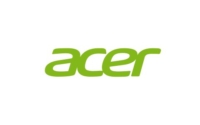By design, Magento Cloud clouds provide an “out of the box” environment structure, containing all the libraries and settings necessary to run Magento, without needing to spend time in finding the correct configuration and specifications. However from time to time, due to technology changes, extra PHP extensions might be required to be installed.
The most common extensions required to be added are those related to security; just like new encryption algorithms that enhance the security of cloud environments. Also, there might be a chance that a new module has been added and requires one of these new PHP extensions.
In this article, it is assumed that a new module was installed and require to use PHP Libsodium extension; and because the Libsodium extension doesn’t exist in the environment Magento might face exceptions, with errors similar like the following appearing in logs:
Since a Magento Cloud environment cannot be changed manually on CLI, the only accepted procedure is to add the library in the .magento.app.yml file, included in every Magento Cloud environment.
Adding Libsodium is as simple as adding in the “extensions” section as follows:
# Enable extensions required by Magento 2
runtime:
extensions:
– redis
– xsl
– json
– blackfire
– newrelic
– sodium
After pushing the changes into the environment and SSH into it, the new extension will be visible and fully configured.
Although Magento Cloud does not allow direct changes to the environment by CLI, it still provides a very flexible mechanism for customizing any environment by utilizing the embedded CI/CD, providing a robust flow for avoiding misconfigurations and human errors; and the same procedure is safe to be applied to any other PHP extensions required over the time.


